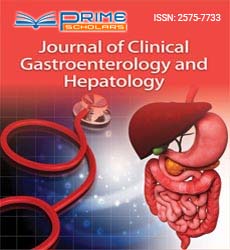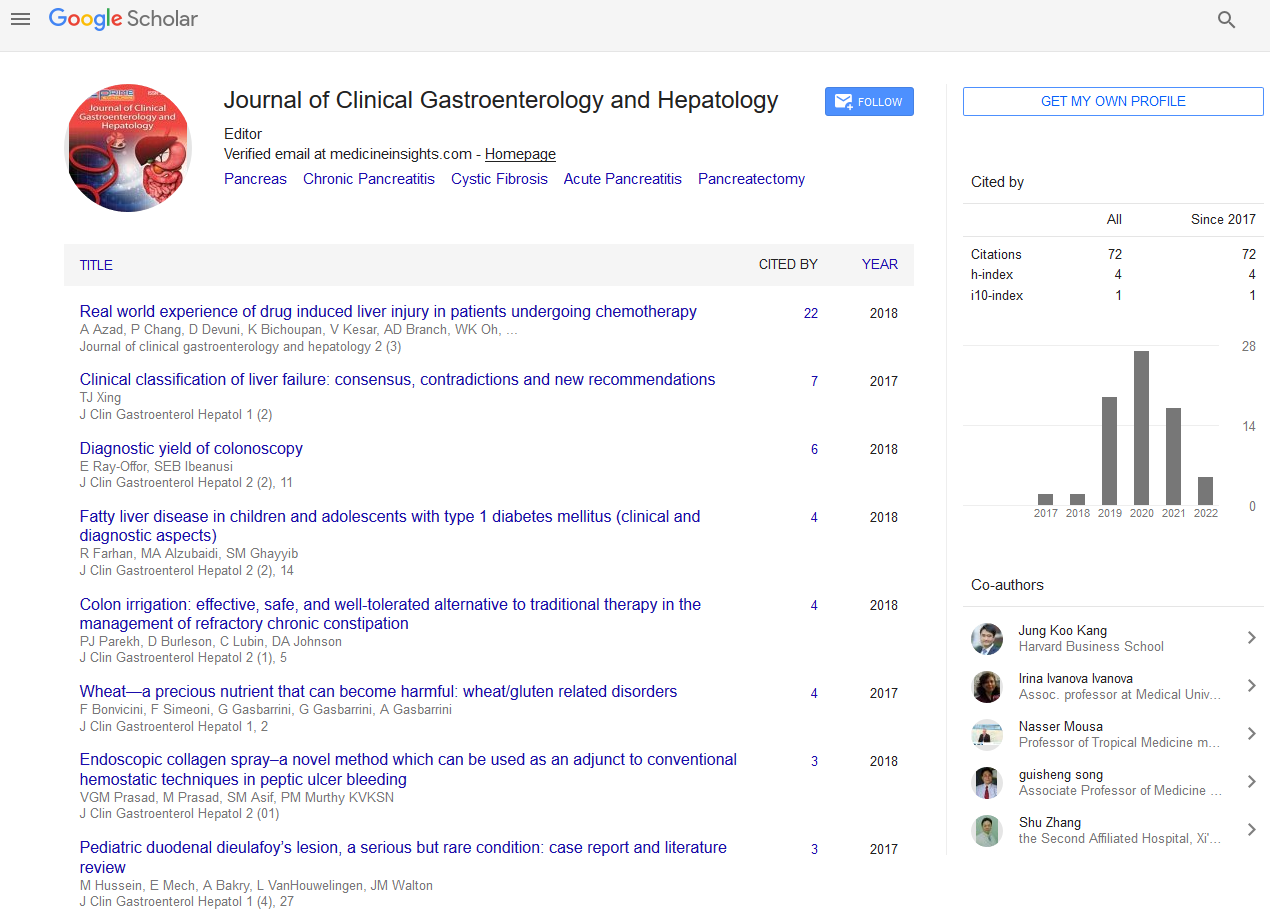Commentary - (2022) Volume 6, Issue 1
Major Complications of Liver Disease
Uchenna Adelina*
Department of General Medicine, Depaul university, United States
*Correspondence:
Uchenna Adelina, Department of General Medicine, Depaul university,
United States,
Email:
Received: 03-Jan-2022, Manuscript No. IPJCGH-22-12587;
Editor assigned: 05-Jan-2022, Pre QC No. IPJCGH-22-12587 (PQ);
Reviewed: 19-Jan-2022, QC No. IPJCGH-22-12587;
Revised: 24-Jan-2022, Manuscript No. IPJCGH-22-12587 (R);
Published:
01-Feb-2022, DOI: 10.36648/2575-7733.6.1.3
Introduction
Liver disease is one of the most severe disease that can be
caused by viruses like hepatitis a, hepatitis b and hepatitis c.
liver has several functions which includes food digesion, processing
and distribution. If any scar tissue is present on the liver
it is called as liver cirrhosis. Problems or issues caused occurring
in liver leads to conditions like cirrhosis, fatty liver disease
and hepatitis. Ascites is the common impediment of cirrhosis.
Symptoms of liver disease varies but most common symptoms
are of swelling of abdomen and legs, colour change of the stool
and urine. Complications of liver disease includes ascites, encephalopathy,
portal hypertension, hepatorenal syndrome and
varieal bleeding. For chronic liver disease liver transplantation
is the only way required or to be done. Treatment and management
would be more easier when the liver disease has been
deducted earlier or in the early stages. Gastrointestinal bleeding
is one of the most complicated issue in the cirrhosis and
this gastrointestinal bleeding is caused by elevated or rise in
blood pressure in the blood vessels around the liver. One of
the complication of liver disease is of hepatic encephalopathy
which can be treated by lactulose therapy. Rifaximin is the primary
drug used to treat hepatic encephalopathy. One of the
complications of liver disease includes deranged clotting. This
deranged clotting can be managed or treated by administration
of vitamin k through intravenous route. Patients suffering
with severe liver disease cannot show any improvement even
after the administration of vitamin k. Encephalopathy or hepatic
encephalopathy can be managed by avoiding or limiting
of protein intake and also administering of ammonia lowering
drugs. Lactulose treatment remains as a standard treatment.
Main complication of liver disease is of ascites and the primary treatment of ascites is of diuretics. Spirnolactone is one of the
best and effective therapy than diuretics. Patients with first episode
of ascites can be treated with combination of spironolactone
along with the diuretic regimen which should also include
the furosemide that is the loop diuretics drug for better efficacy
or effectiveness of the liver disease. Spontaneous bacterial
peritonitis is the serious complication of liver disease in which
mainly the symptoms are of abdominal pain and swelling. This
spontaneous bacterial peritonitis is of asymptomatic. It can be
treated buy using antibiotics especially the third generation
cephalosporins. Pruritus is one of the other complication of
liver disease and it is caused due to the build-up of bile salts in
heavy concentrations that gets irritation to the skin. This can be
treated by administering of ursodeoxycholic acid. Hepatorenal
syndrome is the condition where the renal system gets damaged
and this can be treated by only dietary intake especially
by limiting the salt consumption. Portal hypertension is also
one of the major complication of liver disease which can be effectively
treated by administering of beta blockers and the other
way to treat portal hypertension is to perform a procedure
which involves shunt to reduce the pressure and to control the
portal hypertension. The complications of liver diseases can be
treated or managed by taking certain medication and the dietary
intake.
Acknowledgement
The authors are grateful to the journal editor and the anonymous
reviewers for their helpful comments and suggestions.
Conflict of Interest
The authors report no conflict of interest.
Copyright: This is an open access article distributed under the terms of the Creative Commons Attribution License, which permits unrestricted use, distribution, and reproduction in any medium, provided the original work is properly cited.

